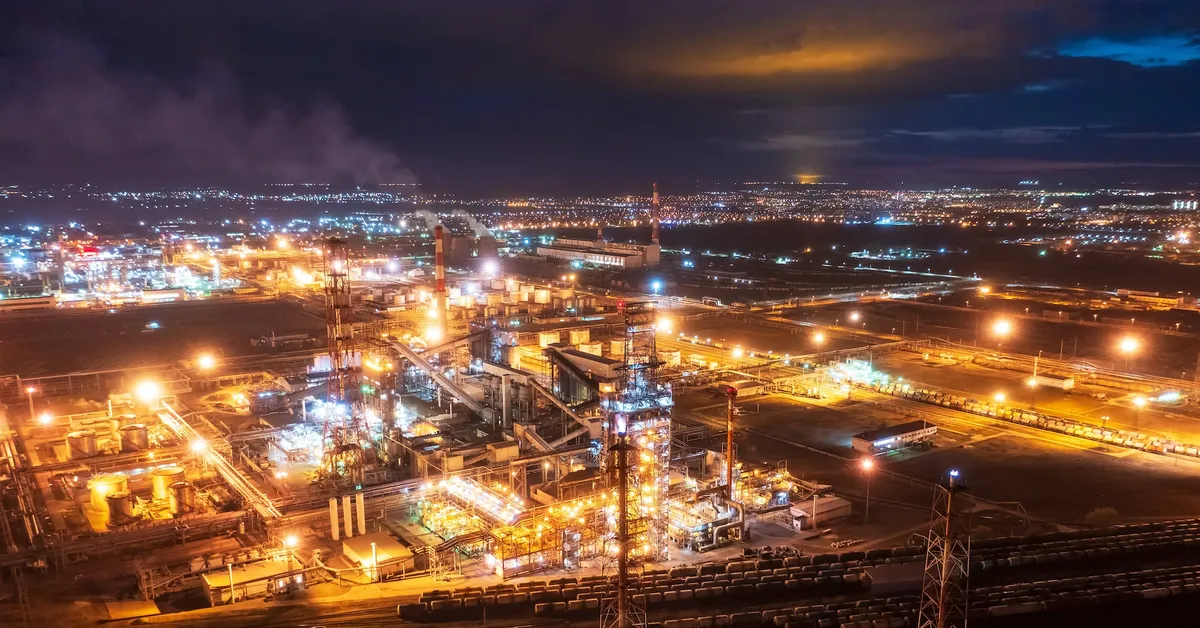
In a significant policy shift, U.S. President Donald Trump has announced sanctions targeting Russia's two largest oil companies, Rosneft and Lukoil, in response to Moscow's ongoing war in Ukraine. This move has led to a notable increase in global oil prices, rising by 5% on Thursday. Additionally, India is reportedly considering reducing its imports of Russian oil in light of these sanctions.
The newly imposed sanctions focus on Rosneft and Lukoil, which collectively represent over 5% of global oil output. This marks a sharp U-turn for Trump, who just last week had discussed a potential summit with Russian President Vladimir Putin in Budapest aimed at resolving the Ukraine conflict. However, Trump has since canceled the summit, expressing concerns that it would not yield the desired results.
In a statement to reporters at the White House, Trump explained, “We cancelled the meeting with President Putin — it just didn't feel right to me... it didn’t feel like we were going to get to the place we have to get. So I cancelled it, but we’ll do it in the future.”
Russia has dismissed the impact of the new U.S. sanctions as unproductive. The Kremlin maintains that its conditions for ending the war in Ukraine remain unchanged, which many in Kyiv and across Europe see as tantamount to surrender. As the conflict continues, European Union leaders and Ukrainian President Volodymyr Zelenskiy met in Brussels to discuss financial support for Ukraine, with discussions around using frozen Russian assets to provide a substantial €140 billion ($163 billion) loan to Kyiv.
In response to the potential seizure of assets, Moscow has threatened to retaliate. Meanwhile, recent attacks in Ukraine have seen Russian drones strike the capital for a second consecutive night, injuring nine individuals, while Ukrainian air defense forces reported shooting down 139 drones.
U.S. Treasury Secretary Scott Bessent emphasized that the sanctions are aimed at crippling Russia's ability to finance what has become Europe’s largest land conflict since World War II. He stated, “Given President Putin’s refusal to end this senseless war, Treasury is sanctioning Russia’s two largest oil companies that fund the Kremlin’s war machine.” Bessent also urged allies to comply with these sanctions.
Despite a 21% decline in Russian oil and gas revenues year-over-year, which account for about a quarter of the country’s budget, experts suggest that the immediate financial impact may be softened due to Moscow's reliance on taxing oil production rather than exports. Russian Foreign Ministry spokeswoman Maria Zakharova downplayed the sanctions, asserting that the country has developed resilience against such restrictions.
Ukrainian President Zelenskiy expressed gratitude towards the U.S. for the new sanctions, highlighting their importance in the ongoing struggle against Russian aggression. However, he urged that additional pressure on Moscow is necessary to achieve a ceasefire. The oil price surge has raised concerns over potential disruptions to global supply, prompting Indian refiners to consider a significant reduction in Russian oil imports to align with U.S. sanctions.
India has emerged as a major buyer of discounted Russian oil following Western sanctions. The U.S. Treasury has provided companies until November 21 to cease transactions with the sanctioned Russian oil producers. Analysts predict that these sanctions might compel Russia to further discount its oil in global markets as a strategy to offset the risks of secondary sanctions.
After an August summit with Putin in Alaska, Trump had previously shifted his stance, opting for a broader peace negotiation instead of an immediate ceasefire. However, recent developments indicate a return to advocating for a ceasefire, a position supported by Kyiv but rejected by Moscow, which continues to advance its military operations.
Russia has articulated its opposition to a ceasefire, arguing it would merely serve as a temporary pause for Ukraine to regroup. Instead, Moscow insists on a comprehensive peace settlement that would ensure a lasting resolution, although Ukraine sees the terms proposed by Russia as unacceptable and effectively a demand for surrender.
Zakharova characterized the sanctions as counterproductive in the context of seeking a negotiated solution. Former Russian President Dmitry Medvedev likened Trump’s sanctioning actions to an act of war, further escalating tensions in the region.
As the situation develops, the international community continues to watch closely, with implications for global oil markets and geopolitical relations at stake.